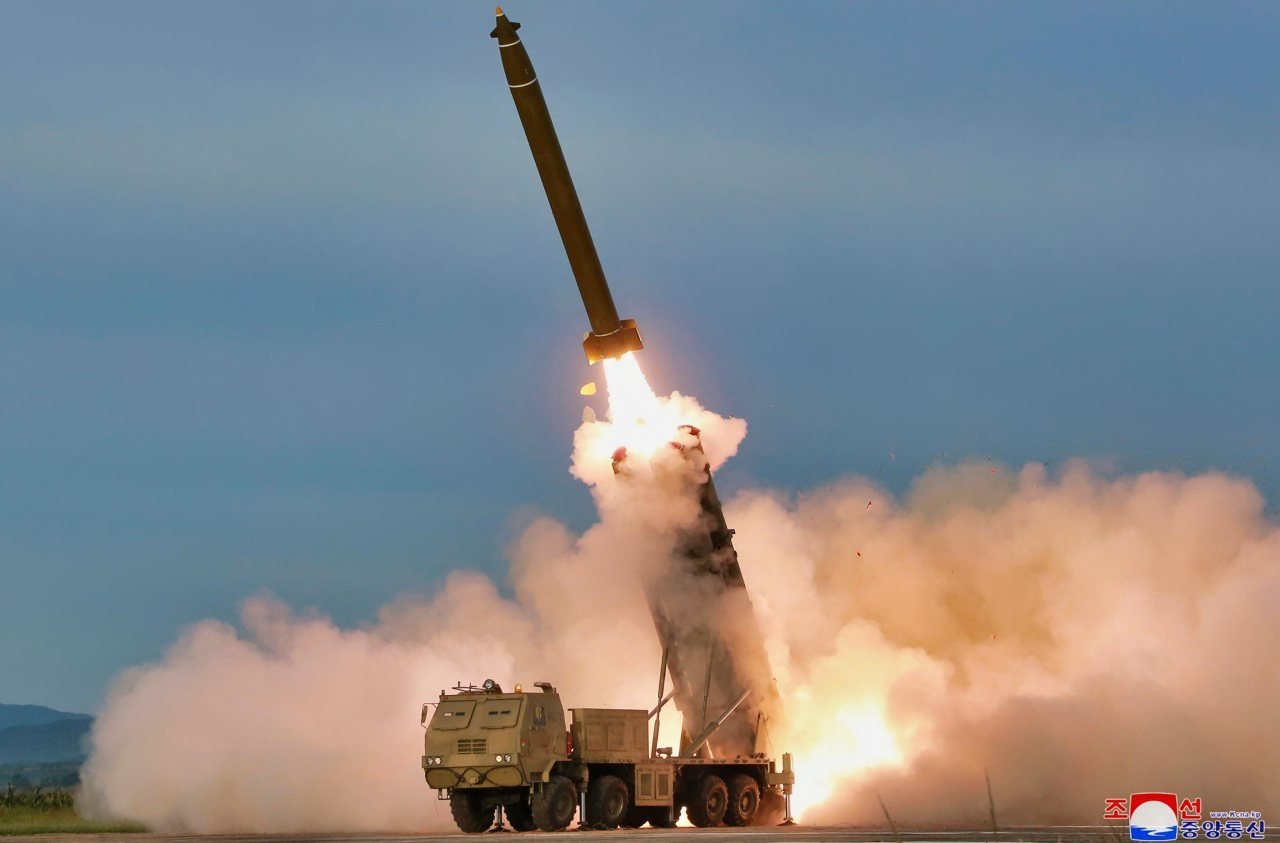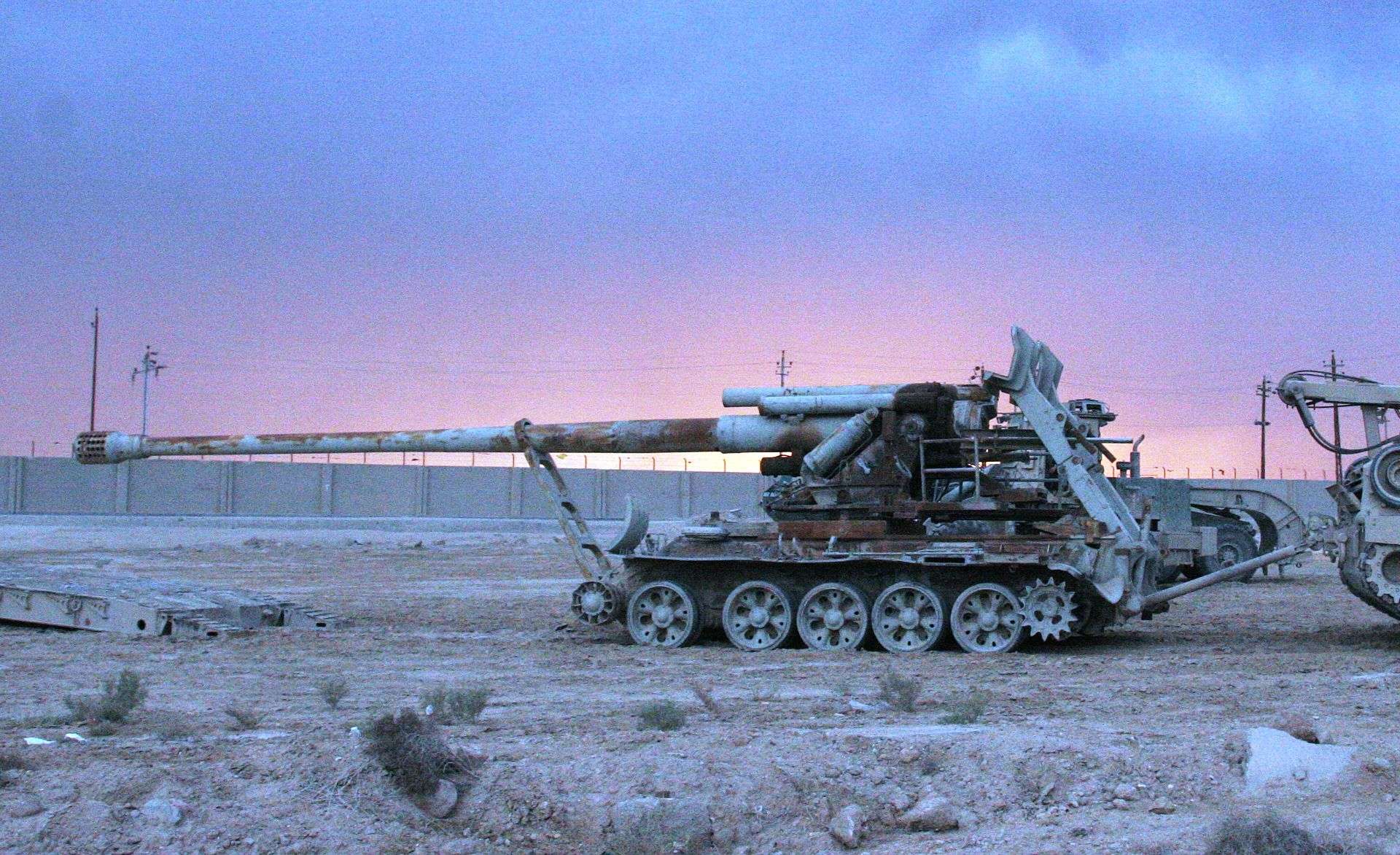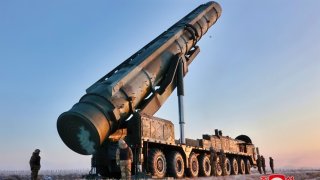The Next U.S. President Needs a New North Korea Strategy
Should Vice President Kamala Harris win the U.S. presidential election this fall, she will inherit the North Korea problem: an aggressive rogue nuclear state with increasingly sophisticated capabilities.
Should Vice President Kamala Harris win the U.S. presidential election this fall, she will inherit the North Korea problem: an aggressive rogue nuclear state with increasingly sophisticated capabilities. From its nuclear weapons program to cyber attacks, it is no secret that North Korea poses a wide range of real and imminent threats to American national security.

Whether we recognize it or not, North Korea is a dangerous and disruptive player on the global stage that also challenges fundamental American values. For a largely unpredictable regime, it is entirely predictable that Pyongyang will step up its provocations to test the new U.S. administration.
While it is easy to dismiss North Korea as a poor, isolated, and dysfunctional society, we risk underestimating the adversary with such a simplistic view. Much of the American public’s attention has been sporadic at best when it comes to North Korea, which is usually centered around nuclear tests. For all the photo ops and rhetorical exchanges we saw under the Trump administration, or the silence we witnessed under the Biden administration, North Korea has become more destabilizing for the global community in recent years.
What is really happening inside the Hermit Kingdom is rarely in the news. North Korea is committing crimes against humanity on its population in broad daylight, generating revenue through the human trafficking of women and children, attacking American banks and hospitals to sabotage American infrastructure and steal from American citizens, as well as openly conducting illegal business with non-state terror groups in addition to assisting its allies like Russia, Iran, and China.
Today, North Korea boasts a military with nearly 1.3 million active personnel, with some fifty to 100 nuclear warheads as of 2024, with a highly advanced cyber unit and a reservoir of chemical and biological weapons. Concurrently, some 12 million people in North Korea suffer from hunger and malnutrition, in addition to other serious human rights abuses.
Passing the Torch
For decades, successive U.S. administrations have tried and largely failed to contain North Korea’s reckless behaviors. In fact, despite a series of increasingly more comprehensive sets of international sanctions imposed on North Korea, political condemnations through United Nations Security Council resolutions, and various diplomatic efforts, none of it seemed to have deterred or slowed down North Korea’s ambitions. In turn, the Kim regime focused on other means of generating revenue, such as cyber-attacks and illegal arms smuggling with Hamas and Hezbollah, and carried on.
American insistence on the complete, verifiable, irreversible dismantling (CVID) of North Korea's weapons of mass destruction program has frankly not led to any fruitful outcomes. The sanctions are not going to deter the regime if it continues to succeed in illegal means of generating funds. It may be more useful to accept that North Korea will not give up its nukes, and instead focus on carrots that we can offer to incentivize the Kim regime to change its behaviors. North Korea has also become a critical supplier of munitions for Vladimir Putin’s war in Ukraine, and they recently signed a comprehensive strategic partnership in June demonstrating their deepening strategic alignment.
But North Korea is also keen to be recognized as a legitimate player on the global stage, and Kim has shown real interest in developing North Korea’s economy, none of which can be done without Western support. North Korea’s desperation and vulnerability present an opportunity for a new American strategy on the Korean Peninsula.
Elections in the United States are rarely fought on foreign policy issues, and North Korea is no exception to that rule. An incoming Harris administration will need to deal with significant international crises including the war in Ukraine, conflicts in the Middle East, and competition with China, in addition to a range of domestic challenges.
That said, it is time to recognize that the United States can no longer afford to be an idle bystander when it comes to engaging with North Korea. The humanitarian crisis in North Korea, particularly affecting women and children, would certainly be important to President Harris, as a former prosecutor who spent much of her career fighting injustice. Even then, she might be inclined to rely on her senior diplomats and institutional capacity at her disposal in light of other competing priorities in her early years.

The problem here is the cyclical nature of American attention on North Korea and the lack of deep expertise on North Korea within the American system. What we need is a real investment in a coherent long-term strategy to deal with North Korea. Washington also needs to work with its partners like South Korea and other allies, and the recent RIMPAC in Hawaii this summer was a prime example of doing so. In light of the sheer scale of challenges posed by North Korea, it is also important to work with the private sector and NATO's Centres of Excellence, particularly when it comes to threats in cyberspace.
Whether we like it or not, the North Korean challenge also presents a new opportunity for the new president of the United States. The time is ripe for a fundamental paradigm shift in how we deal with Pyongyang, but we cannot do it alone. Instead of a reactionary, passive, and casual approach based on provocations from North Korea, the new Harris administration must show real political leadership on the Korean Peninsula, and lead the world in tackling one of the most compelling challenges facing humanity.
About the Author
Dr. Tina J. Park is the Chief Executive Officer of The Park Group Inc., a global consulting firm specializing in international security issues. As one of Canada's top experts on the Indo-Pacific, she has served as a voice of authority on North Korea and NATO with BBC, Al Jazeera, CBC, CPAC, TVO, LBC, LPR, CTV News, Global News and CP24. For the past decade, she has lectured on Canadian foreign policy, the history of espionage, and North Korea to students at the University of Toronto and high-ranking officials in NATO member states. As a fellow at the NATO Defence College in Rome, she published a seminal work on NATO's strategy with regard to North Korea. Dr.Park speaks six languages and has traveled around the world to advise NATO members on their Indo-Pacific strategies. She is currently working on a book called NATO & the Indo-Pacific: Threats and Opportunities to be published in 2025.
Image Credit: Creative Commons and/or Shutterstock


